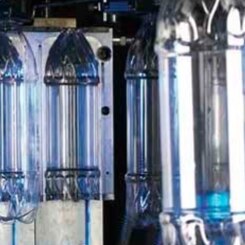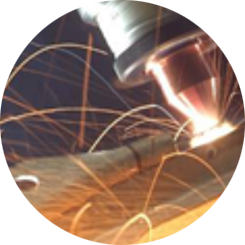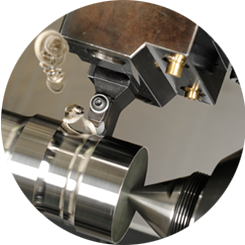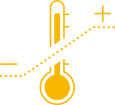Cooling in Industry
Cooling requirements are widespread in both the industrial & commercial sectors. Cooling is generally split into the following groups:
For Illustrations with markers, the best experience is on a larger screen.
CLOSE
Cooling requirements are widespread in both the industrial & commercial sectors. Cooling is generally split into the following groups:
This type of cooling is applied when an accurate and constant control of temperature within a process is required. Precision water chillers are commonly used due to their ability to provide cooling capacity regardless of changes to the ambient temperature, heat load and flow requirements of the application.
This type of cooling technology regulates the temperature and humidity in a space. The technology is generally simple and used for cooling rooms, electrical cabinets or other places where temperature control does not have to be precise and constant. Air conditioning units fall into this technology group.
The global cooling market holds a huge potential and continues to grow year upon year. Overall market size for cooling is estimated at $181 Billion for 2019. This market is expected to grow to $251 Billion by 2024 representing a CAGR of 6.8%.

Process cooling requirements represents approximately 35% of the above total market share. The overall size of the addressable market offers a significant opportunity for Parker and its dedicated distributors to develop and share success together.
In its most simplistic form, process cooling can be defined as follows:
Process Cooling is the removal of unwanted heat from a process.
Removal of the unwanted heat is often necessary to ensure the process continues in a safe, efficient & reliable manner.
In many industrial processes the heat load must be carefully managed. Different aspects of the overall application may require cooling.
Key cooling areas are as follows:



In many processes, the integrity of the final product and the process itself are reliant on precise heat management.
Key drivers for a cooling requirement are as follows:

Precision water chillers can be integrated with ease into most applications. The water chiller utilises a refrigeration circuit to remove the heat load passed onto the cooling fluid (water or Glycol mix) returning from the application.
The ability of a precision water chiller to operate across a range of ambient conditions at variable loads make them ideal for delivering efficient process cooling. Advantages of using water chillers for process cooling include the following:

Maintain constant and precise control of the process temperature

Cooling fluid can be delivered direct to the application heat source

Cooling is independent of the ambient conditions

Minimise potential contamination of the process through closed loop water circuit

Cooling fluid is recirculated reducing waste and cost

Modular design offering expansion options

High heat exchange capacity

Water is a readily available & low-cost resource in most industries

Potential to integrate into existing free cooling systems